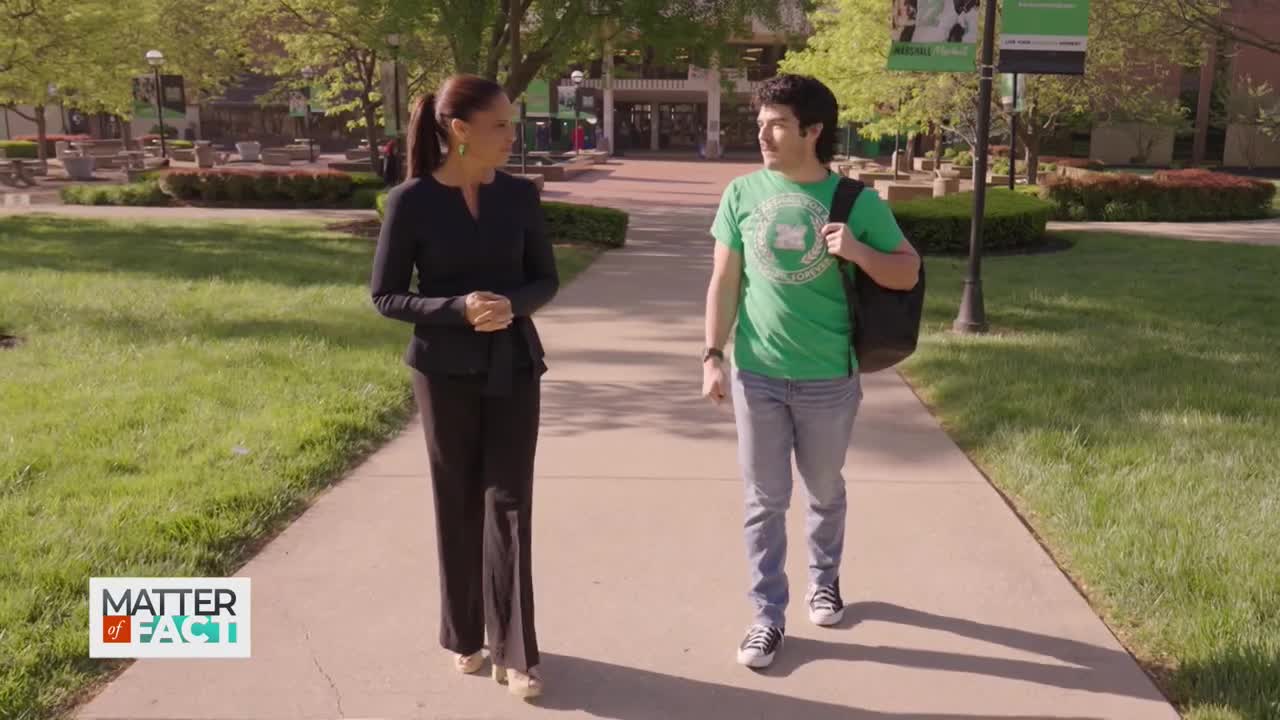
Getting a college degree in the United States can come with a high price tag. The average tuition costs around $26,000 for a public university and $38,000 at a private college – leaving many graduates with hefty loans to pay. Now, colleges are looking for ways to ease the financial burden. Soledad O’Brien visits Marshall University to learn about a pilot program that’s helping students graduate without any debt.
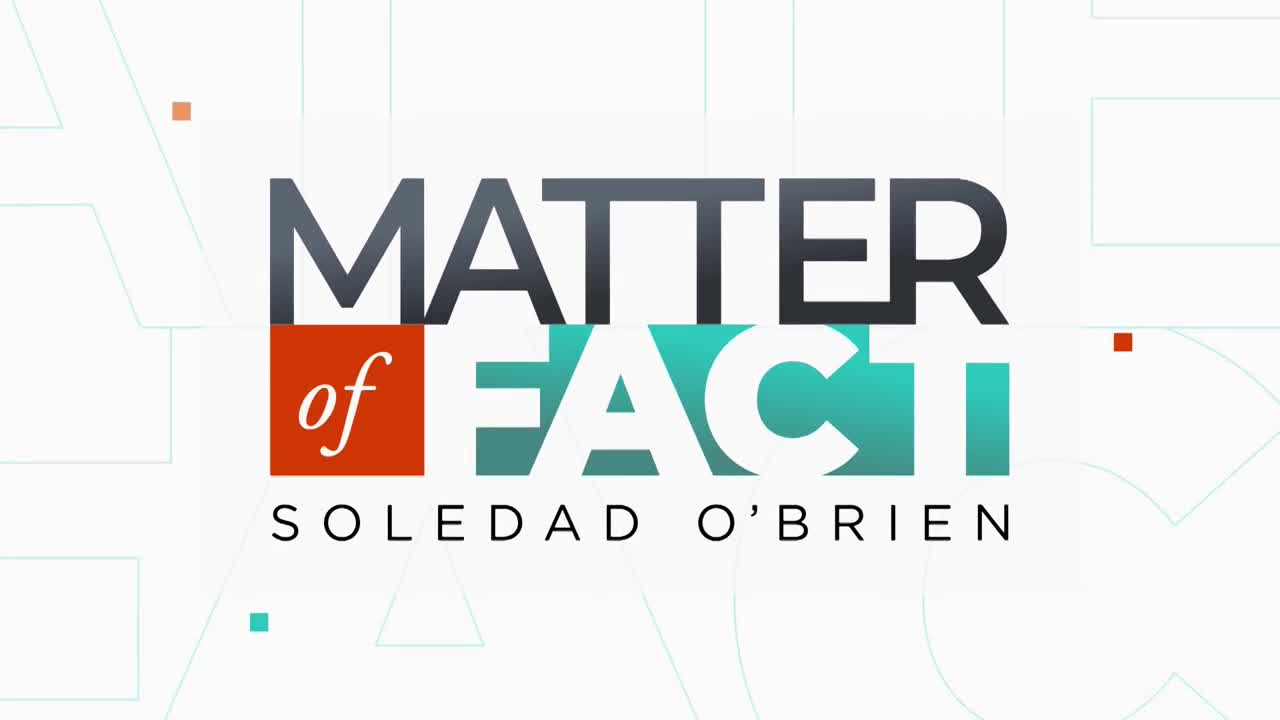
This week Matter of Fact travels to West Virginia to learn how a new program at Marshall University is helping some students graduate without debt. Plus, the governor of Utah talks about his initiative to end animosity between Republicans and Democrats. And, a Colorado-based designer explains how he restores dinosaur fossils for museums.
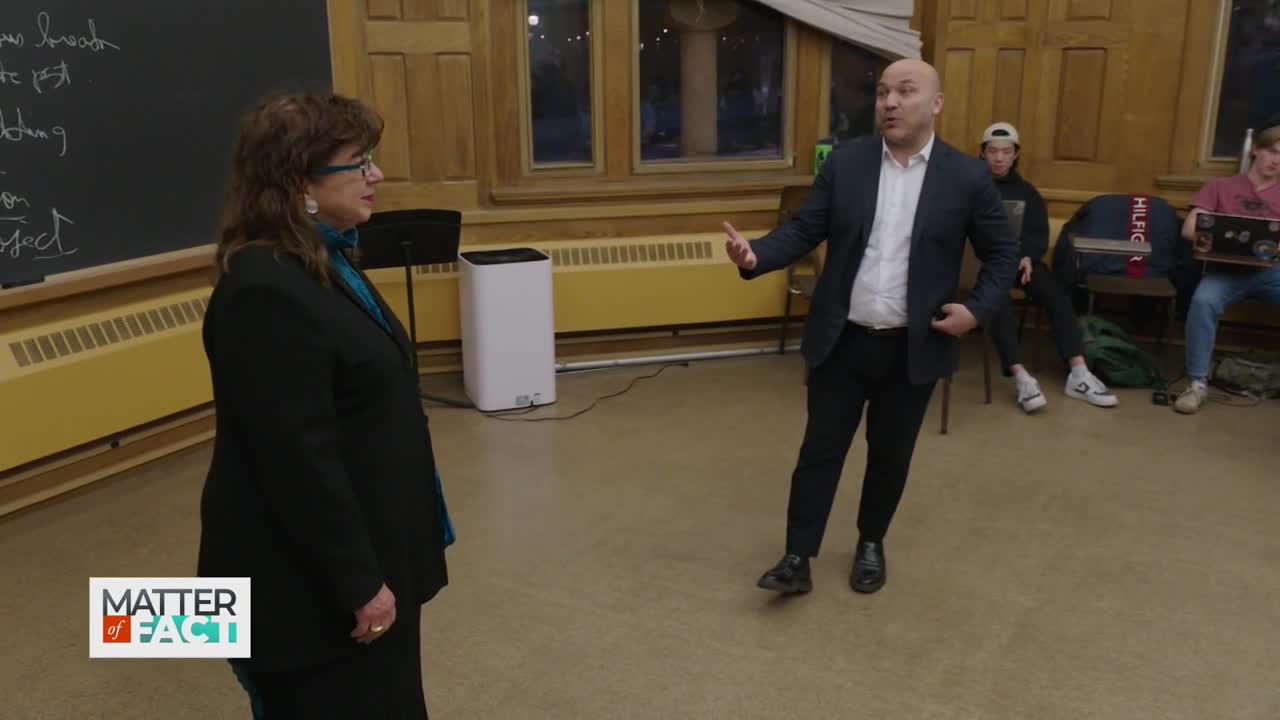
Demonstrations against the war in Gaza are happening on college campuses across the country. At Dartmouth College, professors brought the debate about the conflict into the classroom for a public forum. The school also offers a course co-taught by a Middle East studies professor and a Jewish studies professor. The class helps students form a deeper understanding of the Middle East’s past, present and future. Correspondent Leone Lakhani travels to Hanover, New Hampshire to see the “scholarly exchange” in action.
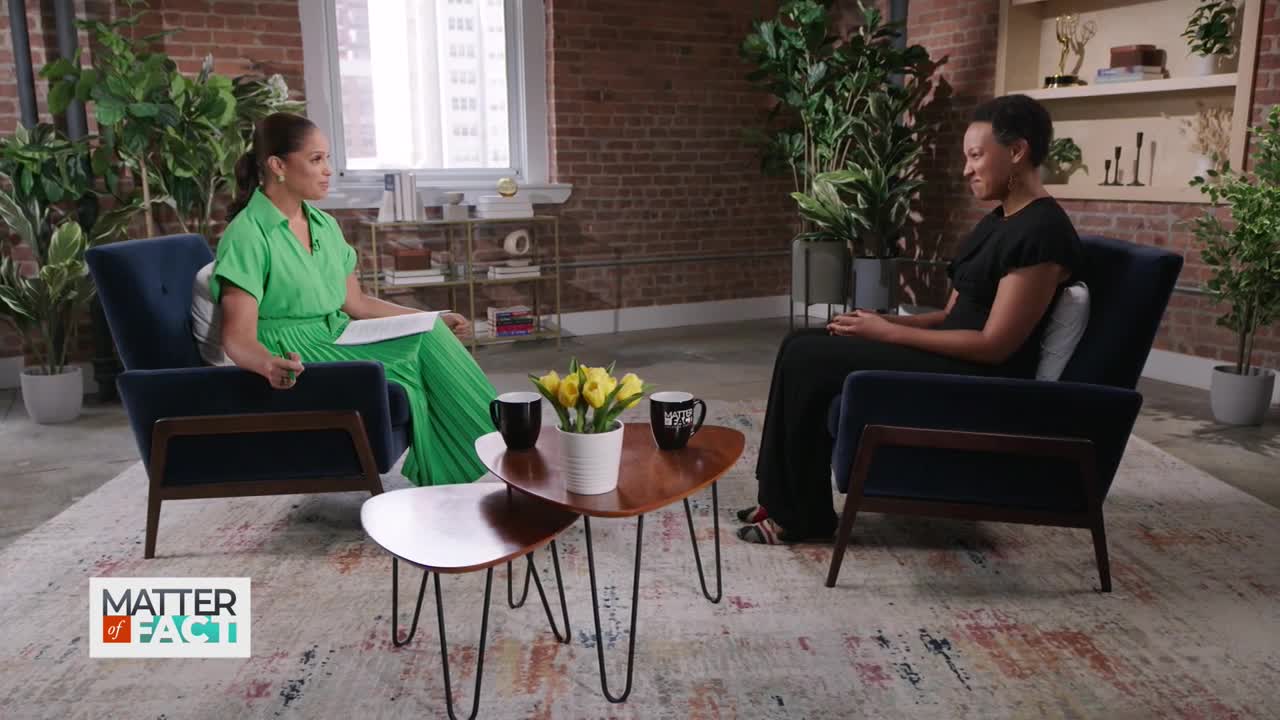
A racially biased test kept more than 14,000 Black people from getting kidney transplants. The test, which was considered the gold standard for determining kidney health, used a formula that overestimated how well Black people’s kidneys were functioning and increased their wait times to receive transplants. Dr. Michelle Morse, New York City’s first chief medical officer, says these types of race-based tests are unfair, but they are fixable. She joins Soledad O’Brien in studio to explain how she’s working to end biased testing throughout the country.

This week Matter of Fact visits Dartmouth College where Jewish and Middle Eastern studies professors are co-teaching a class that addresses the conflict in Gaza. Plus, New York City’s first chief medical officer works to get rid of racially biased tests in healthcare. And, 175 countries join forces to curb plastic pollution.
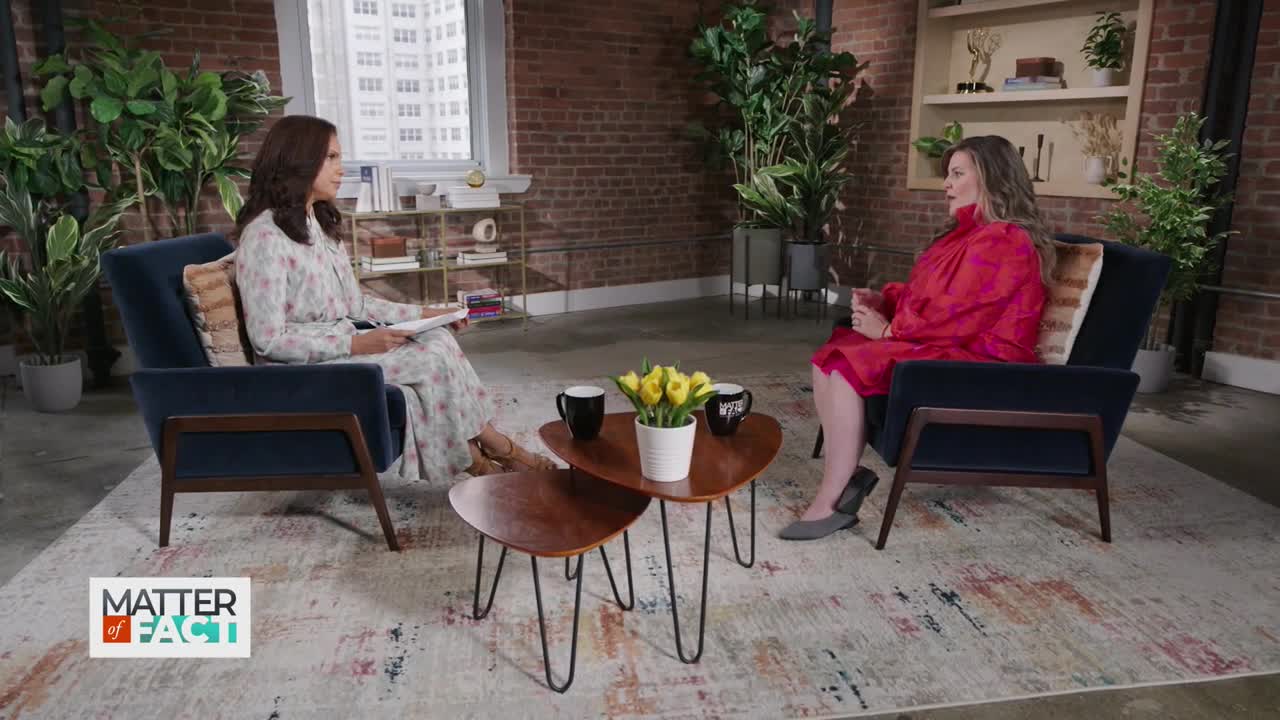
More than 8 million people in the United States were born through in vitro fertilization, including Elizabeth Carr, who was the first IVF baby in the country. More than 40 years later, Carr says people still don’t have a full understanding of IVF and what it entails. She sits down with Soledad O’Brien in studio to talk about her birth and how she’s advocating for other families.
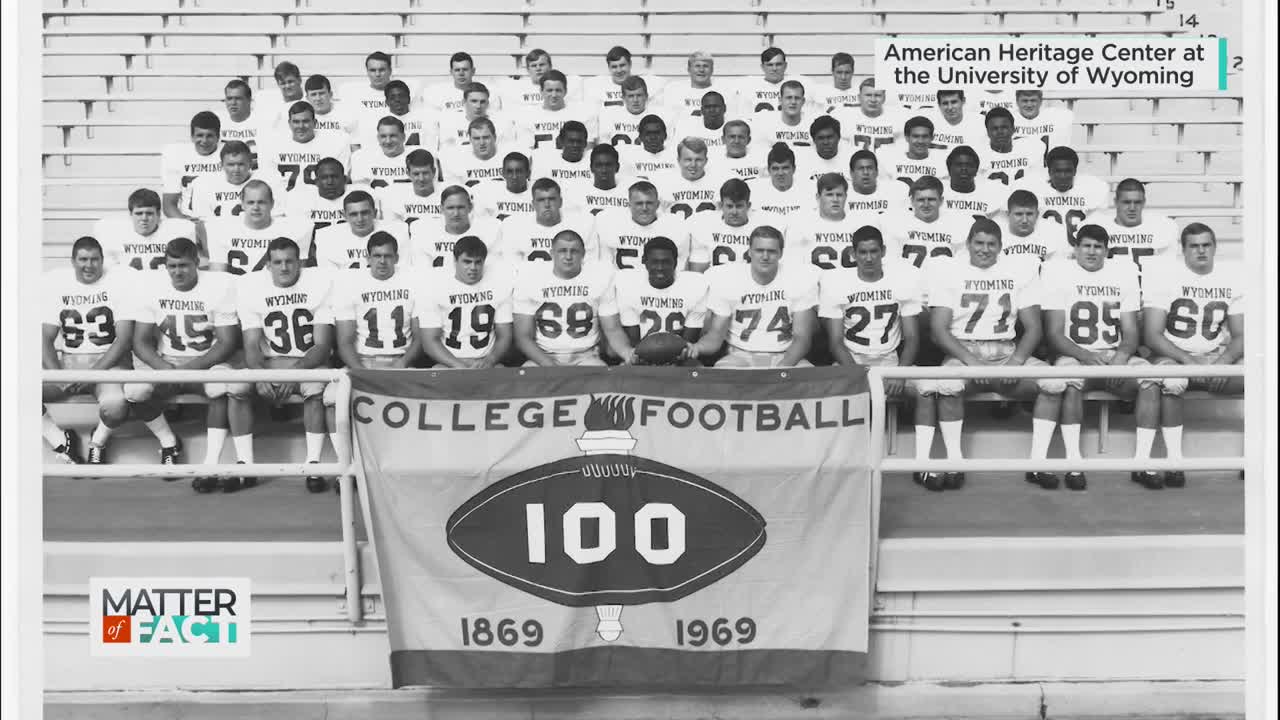
College athletes and activism have a long history. In 1969, a group of players known as the Black 14 were kicked off the University of Wyoming’s football team over a planned protest. More than 50 years later, the NAACP is urging Black athletes to avoid attending public universities in Florida, following a state ban on DEI initiatives at those schools. Correspondent Joie Chen speaks to Tony McGee, one of the members of the Black 14, about his advice for young players.

This week Matter of Fact looks at the history between student athletes and activism. Plus, the first person born through IVF talks about advocating for the procedure. And, we travel to San Antonio to see how one shelter is taking a unique approach to getting people off the streets.

Secretaries of state often serve as the chief election officials in their state. They oversee the election process and report the official results. Scott Schwab is the Kansas Secretary of State and president of the National Association of Secretaries of State. He joins Soledad O’Brien in studio to explain how state officials are constantly working to improve election security and ensure the public’s trust in the voting process.
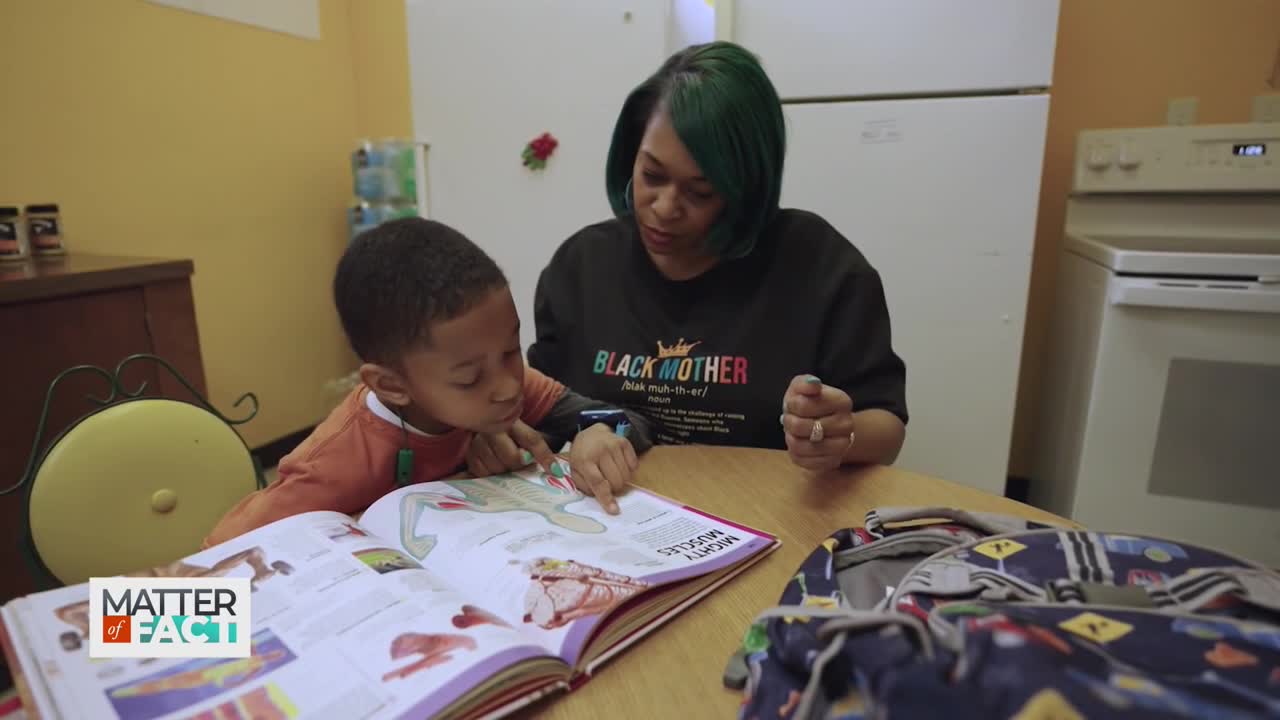
Homeschooling saw an uptick during the pandemic as children were forced to stay home. Years later, many families have chosen to continue at-home education instead of returning to the public school system. There is little to no regulation of homeschooling in the U.S. – with 11 states, including Michigan, not requiring homeschooled children to be counted or registered. Correspondent Dan Lieberman travels to Detroit where there is an ongoing debate over the need for more oversight for homeschool.